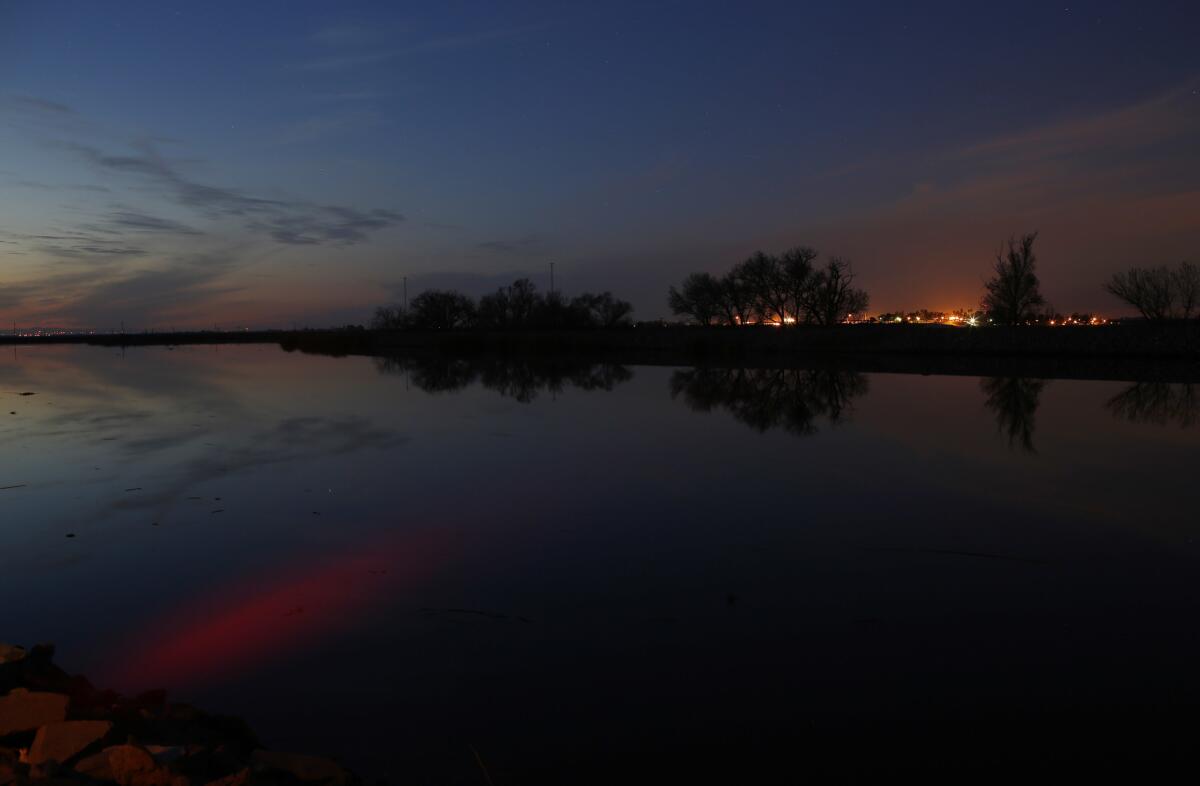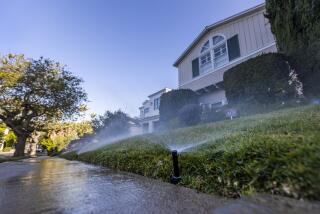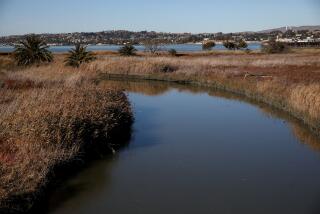California water bill passes House, but Democrats vow to fight it in the Senate

Some of California’s decisions about how to use its water would be relegated to the federal government under a bill passed by the House on Wednesday.
Republicans say the bill will bring more water to the parched Central Valley. California’s Democratic senators have promised to fight the bill in the Senate because it weakens California’s ability to manage its own resources.
The Gaining Responsibility on Water Act, sponsored by Central Valley Rep. David Valadao (R-Hanford), was approved in the House by a 230-190 vote largely along party lines.
Republicans say the bill would streamline dam construction and other water storage projects, and allow more water from the Sacramento-San Joaquin River Delta to be used in the Central Valley rather than flowing out to sea.
“This is a reasonable approach, we’re trying to fix some real problems that need to be adjusted,” Valadao said.
Democrats say it would preempt California water laws and impede the Endangered Species Act by waiving some of the most stringent environmental reviews required by the law.
California’s congressional delegation has long disagreed over how to respond to the the state’s water needs, often pitting protecting endangered species and preserving waterways against agricultural demands and drying wells.
Only one California Democrat, Rep. Jim Costa (D-Fresno), voted for the bill. He said he has concerns about two parts of the bill that affect his district, but he expects changes to be made in the Senate.
Much of the bill’s provisions have passed the House before, but stalled in the Senate. With opposition from both California senators, and the Obama White House promising to veto, the Republican-led Senate never brought it up for a vote.
Rep. Jerry McNerney (D-Stockton) expects opposition from California’s senators and governor to be enough to stop the bill before it reaches President Trump.
“Every two years we fight this thing out,” McNerney said. “It’s good political theater for some colleagues, but it’s not going to get through the Senate.”
But Valadao said he thinks having a Republican president improves its chances.
“I feel really good about it. I know we’re going to have to negotiate with our senators, hopefully they’ll come to the table,” Valadao said.
The bill builds on a previous water measure that House Majority Leader Kevin McCarthy (R-Bakersfield) and Sen. Dianne Feinstein (D-Calif.) negotiated last year, McCarthy said in a video released by his office.
“This will provide more water ... allow more of that water to come through the Valley where it’s needed instead of out to the ocean,” he said.
The previous measure was the result of years of negotiations between California’s GOP members and Feinstein. It focused on environmental restrictions that have at times limited water deliveries from the Sacramento-San Joaquin River Delta to the San Joaquin Valley and Southern California. It also allowed officials at state and federal water management agencies to exceed environmental pumping limits in order to capture more water during storms.
It passed over the objection of many California Democrats, including now-retired Sen. Barbara Boxer, who said it opened the door to bypassing the Endangered Species Act.
In a statement released early in the week, Feinstein and the state’s new Sen. Kamala Harris, both Democrats, said they would do what they can to stop the bill in the Senate.
“California’s Central Valley helps feed the world. It deserves sensible and responsible water solutions — this measure doesn’t even come close to meeting that test,” they said in a statement.
Gov. Jerry Brown pleaded with House leaders Monday to respect California’s right to manage its own water and not hold the vote.
“California is the sixth-largest economy in the world and its future depends on the wise and equitable use of its water. Making decisions requires listening to and balancing among the needs of California’s nearly 40 million residents and taking into consideration economics, biodiversity and wildlife resources,” Brown said in a letter to lawmakers. “All of this is best done at the state and local level — not in a polarized political climate 3,000 miles away.”
Follow @sarahdwire on Twitter
Read more about the 55 members of California’s delegation at latimes.com/politics
ALSO:
A problem ‘too big to ignore’ — how years of congressional wrangling led to a water compromise
In this California congressional district, water is more important than Donald Trump
Updates on California politics
More to Read
Get the L.A. Times Politics newsletter
Deeply reported insights into legislation, politics and policy from Sacramento, Washington and beyond. In your inbox three times per week.
You may occasionally receive promotional content from the Los Angeles Times.







